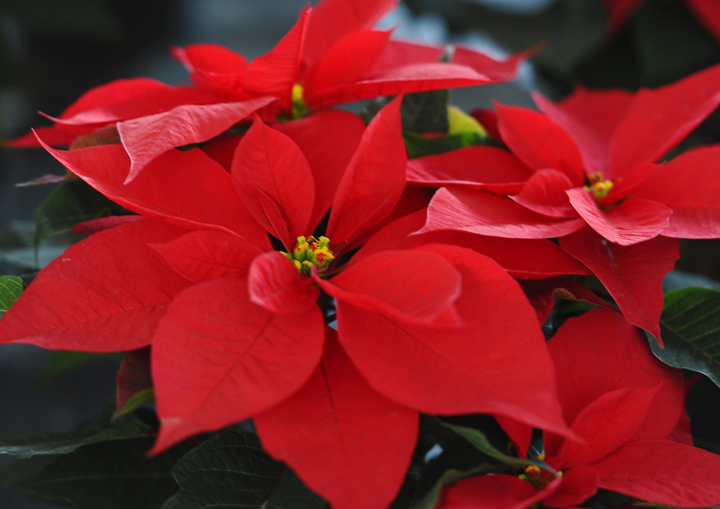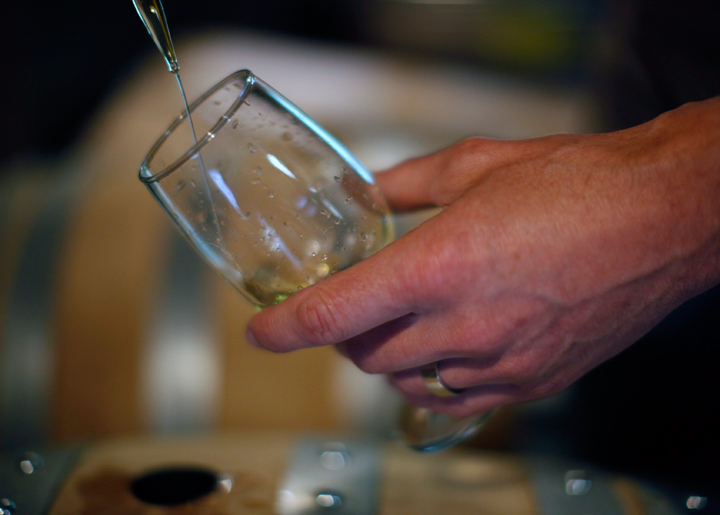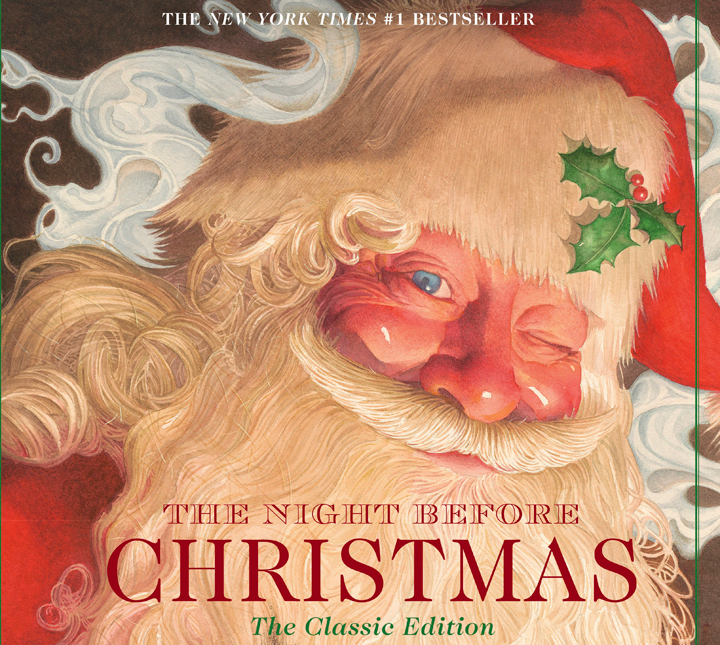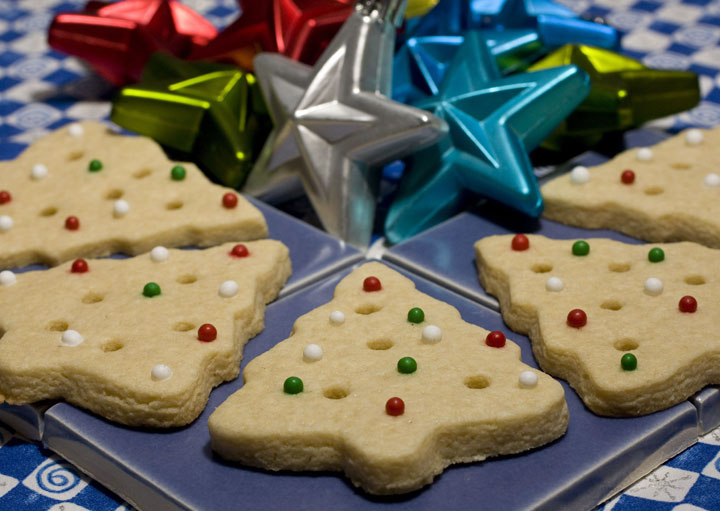TORONTO – Will brandy keep you warm while out playing in the snow? Are poinsettias poisonous to pets and young children? During the Christmas and holiday season, we are often bombarded with many stories of fiction, exaggerations and superstitions.

We take a look at the truth behind six common holiday myths.
MYTH: Drinking alcohol keeps you warm
While drinking one alcoholic drink can make you feel warmer, the truth is that it actually can cause heat loss said Canada’s Safety Council.
A nip or two of brandy, for example, can make your blood vessels dilate and cause warm blood to move closer to the surface of your skin. This process can make you temporarily feel warmer.
Simultaneously however, those same veins pumping blood closer to the skin’s surface decreases core body temperature—the kind of you need to survive.
If out in a cold environment, consuming alcohol can lead to fatal hypothermia.
MYTH: Suicide rates rise during the holiday season
Despite a commonly held myth that the Christmas season has the highest suicide rate of all the seasons, suicide rates are actually lower at that time of year.
- Canadian man dies during Texas Ironman event. His widow wants answers as to why
- ‘Shock and disbelief’ after Manitoba school trustee’s Indigenous comments
- Several baby products have been recalled by Health Canada. Here’s the list
- ‘Sciatica was gone’: hospital performs robot-assisted spinal surgery in Canadian first
READ MORE: 7 common suicide myths
“Studies suggest that while the holidays can bring up some very difficult emotions, they also tend to evoke feelings of familial bonds and these feelings may act as a buffer against suicide,” according to the Ontario Association for Suicide Prevention.
Seasonal affective disorder (SAD), a form of depression closely related to the winter season, seems to increase in frequency around the holidays. The Canadian Mental Health Association said it is important to note that the condition is triggered by the short, dark, cold days of winter and not the actual holidays.
MYTH: Poinsettias plants are poisonous to pets and young children
During the holidays, the poinsettia takes centre stage and often a bad rep for being highly toxic. The popular red-leaf plant, however, is only mildly toxic to cats, dogs and young children.
Poinsettias belong to the Euphorbia family, and the most problematic component of the plant is the irritant found in is its milky white sap.
According to the Canadian Association of Poison Control Centres Association, the ingestion of the sap may cause mouth, skin or eye irritation and, at worst, cause irritation of the mouth and stomach and in some cases vomiting. The majority of cases can be managed at home.
“While poinsettias are commonly ‘hyped’ as poisonous plants, they rarely are, and the poisoning is greatly exaggerated,” said the Pet Poison Helpline.
The myth began in 1919 when a young child died and the cause of death was incorrectly attributed to a poinsettia leaf. A study in The American Journal of Emergency Medicine, found not one fatality among 22,793 cases of poinsettia exposures reported to poison control centres nationwide.
Experts still caution against eating the plant – but the bottom line is that poinsettias are not poisonous.
MYTH: ‘’Twas the Night Before Christmas’ was written by Clement Clarke Moore
With this one, we aren’t quite sure but it’s a debate that seems to arise every year. Who really penned ‘Twas the Night Before Christmas?
First published anonymously in 1823 in the New York Sentinel, The Night Before Christmas and ‘Twas the Night Before Christmas was originally called A Visit from St. Nicholas.
READ MORE: 5 hilarious and memorable letters to Santa
A paper in 1837 declared Bible scholar Clement Clarke Moore as the author, even though Moore only took credit 21 years after the story was first published. His author ownership was universally accepted.
Meanwhile, the family of Revolutionary War veteran Henry Livingston have long argued he was the true author and that Livingston had been reading the poem to aloud to his family for years prior to the piece being published in the paper.
Livingston, however, never claimed credit for the poem prior to his death in 1828 and his family was not aware of Moore’s claim to the poem until 15 years after Moore took credit for it.
MYTH: You lose half your body heat through your head
“You must wear a hat because you lose most heat through your head!”
Sure, you may have heard that scolding several times from your parents as a child but that statement, in fact, has very little truth to it.
Doctors say the face, head and chest are more sensitive to body temperature changes.
The myth originated in a U.S. Army field survival guide after scientists put test subjects in the arctic in survival suits without hats. Due to a loss of body heat, the researchers assumed heat loss occurred mostly through our heads.
“If the experiment had been performed with people wearing only swimming trunks, they would have lost no more than 10 per cent of their body heat through their heads,” said scientists from the British Medical Journal in a study.
Experts still advise people to wear a hat and muffler to cover the head and face in cold weather, but that the “40 to 50 per cent of body heat is lost through the head in cold” is just a myth.
MYTH: Weight gain is inevitable
With countless of holiday parties and dinners, it’s easy to assume that weight gain is unavoidable during Christmas.
Yet despite the common belief that the average American or Canadian gains five lbs or more from Thanksgiving to New Years, a study published in the New England Journal of Medicine found that most of us gain less than one pound over the holiday season.
READ MORE: How to stay fit and healthy during the holidays
Staying active, drinking plenty of water to stay hydrated, avoiding going to parties hungry and careful planning are all ways to keep healthy and fit during the Christmas season.








Comments